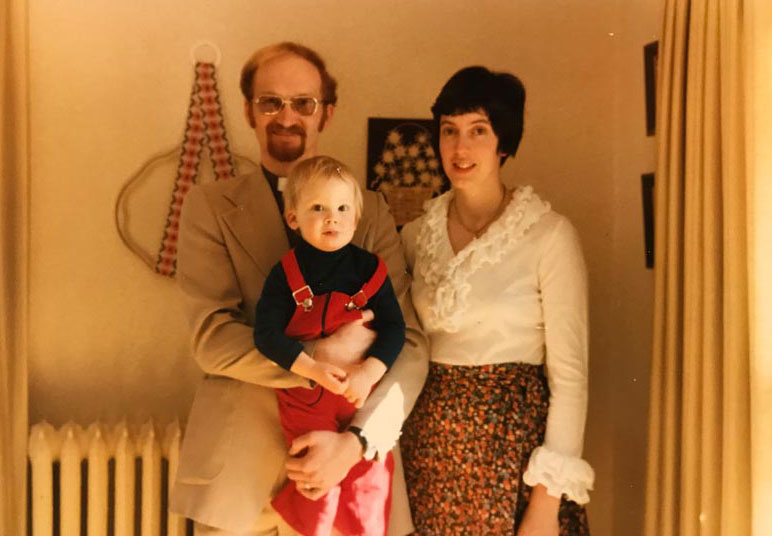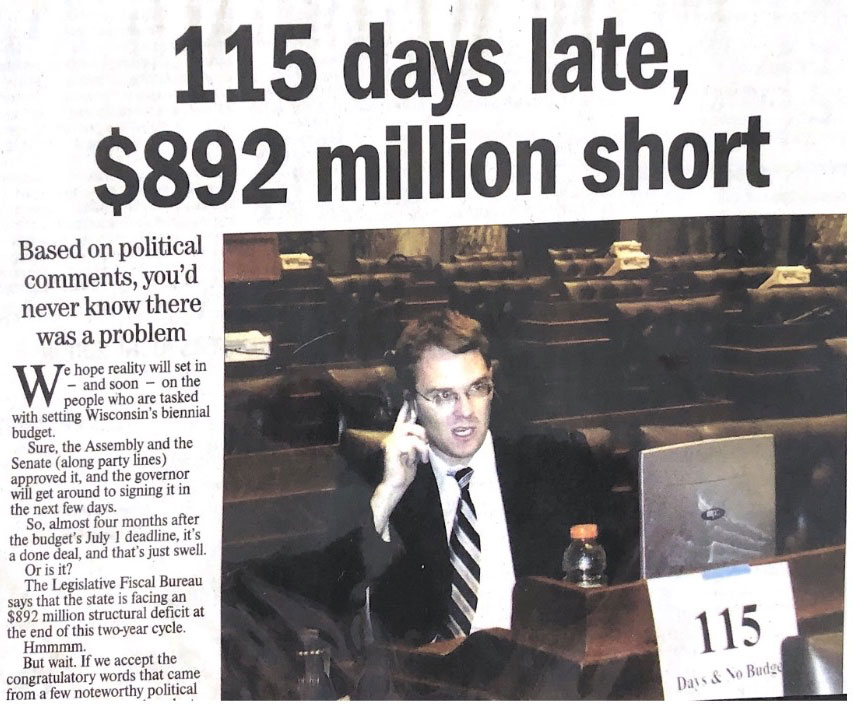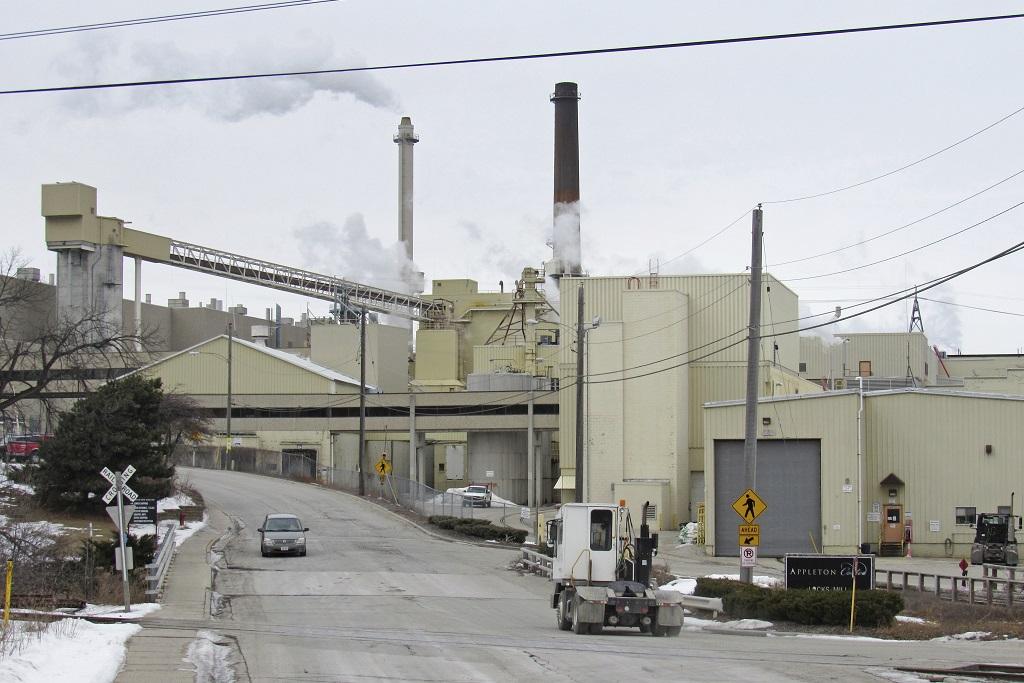Outagamie County Executive Tom Nelson is a 5th-generation Wisconsinite and preacher’s kid, raised amid our rich farms and bustling factories in the Fox Valley, forged by our great public schools and unions, and molded by the fire of our progressive values.
Meet Tom


Tom’s roots in Wisconsin go back five generations. His dad’s parents ran a small dairy farm in the rich soil of Polk County in Northwestern Wisconsin, where, as a kid, Tom cut, baled and stacked hay. His grandparents revered a local favorite son: Earth Day founder and U.S. Senator and Wisconsin Gov. Gaylord Nelson, who lived in nearby Clear Lake. Tom’s father was ordained a Lutheran minister and his duties took him around the state to humble congregations and rural assignments, from Stockholm in Pepin County, to establishing a mission church in Combined Locks in Outagamie County, to a satellite church in Calumet County.

Tom’s maternal grandparents lived in the blue-collar suburb of South Milwaukee, where thousands of factory workers toiled three shifts a day and the ground thudded with the drop forge. His maternal grandfather earned patents at Allen-Bradley, a pillar of Wisconsin manufacturing that lent Milwaukee the nickname “tool and die maker to the world.” Cousins were part of the United Electrical union at Allen-Bradley. Tom’s mother became a teacher in the St. Paul area for several years.

After spending the first few years of his life in Pepin County, Tom’s parents moved to Little Chute, population 7,907, in 1980, where Tom grew up on Carol Lynn Drive, a street populated by blue-collar paper mill workers and their families.

He stocked shelves at Piggly Wiggly and bussed tables at a local supper club while in high school, where he was named to Boys State and graduated as valedictorian in 1994. Originally drawn to a career in the sciences, Tom changed course when he watched Russ Feingold’s grassroots, come-from-behind win in 1992 against a better-funded field of Democrats to unseat a Republican incumbent. Tom went on to Carleton College, attracted to the legacy built there by another of his heroes, Sen. Paul Wellstone. He later earned a Master’s in Public Affairs from Princeton University.

Tom with Sen. Paul Wellstone
Tom’s first campaign, for the Wisconsin Assembly in 2004 in his Fox Valley hometown, was considered by everyone to be a longshot, but he didn’t back down and he didn’t quit. He knocked on 22,000 doors and was the only Democrat that year to beat a Republican incumbent.
His time in the legislature was marked by the economic hardship and pain caused by the housing bubble, stock market speculation and the Great Recession that sent working families reeling. Tom stood up to protect healthcare, education and infrastructure priorities targeted by a Republican onslaught. He was instrumental in preserving the SeniorCare program to lower prescription drug costs. Outraged by the payday lending industry exploiting vulnerable communities, he helped lead a coalition to pass legislation providing stricter oversight, despite an onslaught of lobbyists. As majority leader, he fought to shepherd a Wisconsin version of the Green New Deal (the Clean Energy Jobs Act) that could have created 16,000 jobs, but the State Senate did not support the bill.
Tom isn’t afraid to challenge both parties when he believes it is warranted. He drew national attention in 2007 by staging a sit-in when Wisconsin failed to pass a budget that was costing students tuition grants to go to college. Tom stayed at his desk in the Assembly chambers and overnighted in his sleeping bag and called on his colleagues to do their job, earning the respect of many Wisconsin citizens fed up with the partisan gridlock.

And when radical Republican Gov. Scott Walker ended seven decades of organized labor in the public sector in Wisconsin with the introduction of soon-to-be Act 10 – and his subsequent efforts to end collective bargaining rights in the state – Tom stood up against a flood of dark money and corporate cash as Democratic candidate for lieutenant governor.
After his career in the legislature, Tom was elected Outagamie County Executive in 2011, emerging from a crowded field that included a former Republican state treasurer.
As his home-county’s chief elected official, he’s worked to make it one of the best-managed in the country and it has an Aaa bond rating. He also worked to build a model criminal justice treatment services department that’s turned around hundreds of lives, and one of the largest publicly-owned and -operated recycling facilities in the nation.

Appleton Coated Paper Mill
Among his proudest achievements was helping to win the fight to preserve a century-old paper mill that was being auctioned off for scrap. He joined the United Steelworkers (USW) in the fight, prevailing in court and beating the big banks that wanted to shut the mill down, saving 300 jobs in the process. The mill victory is the subject of Tom’s acclaimed book One Day Stronger: How One Union Local Saved a Mill and Changed an Industry – And What it Means for American Manufacturing.
He lives in Appleton with his wife Maria, their two children Mary and George and their Yorkie Lucy.
Listen to some podcasts on Tom:
Profiles of Tom:
- Milwaukee Journal Sentinel: Tom Nelson Embraces Underdog Role
- Capital Times: Tom Nelson’s focus on worker rights strengthens Senate bid
- Capital Times: Wisconsin’s Tom Nelson talks ‘Labor Autumn,’ quest for U.S. Senate seat
- Bill Kaplan: U.S. Senate candidate Tom Nelson could win statewide
- Ballotpedia: Tom Nelson Profile
